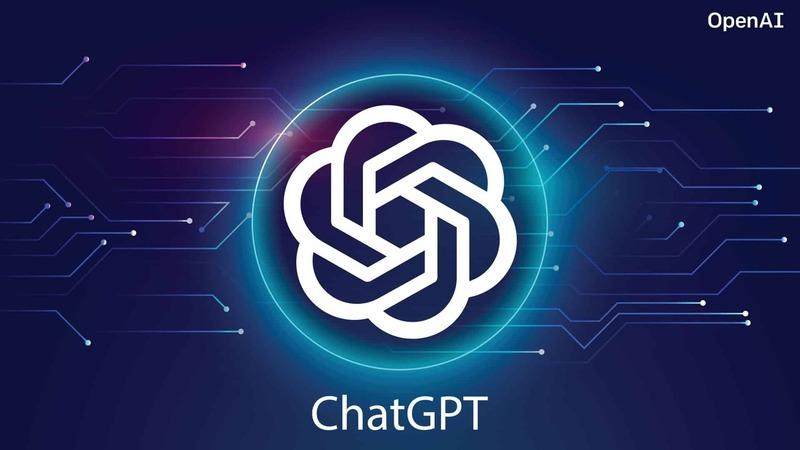An Introduction to Artificial Intelligence: Definitions and Applications
Artificial intelligence (AI) has emerged as a revolutionary field that holds immense potential to transform various aspects of our lives. With its ability to mimic human cognitive functions, AI presents us with the opportunity to create intelligent machines capable of learning, reasoning, and problem-solving. In recent years, AI has gained significant attention from researchers, industries, and policymakers due to its wide-ranging applications across diverse sectors such as healthcare, finance, transportation, and entertainment.
The term “artificial intelligence” refers to the development of computer systems that can perform tasks requiring human-like intelligence. These tasks include understanding natural language, recognizing speech and images, making decisions based on complex data patterns, and even exhibiting emotions. The underlying principle behind AI is to enable machines to learn from experience and adapt their behavior accordingly without explicit programming. By leveraging techniques such as machine learning and natural language processing, AI offers promising solutions for addressing complex problems that were previously thought to be exclusive domains of human intellect.
In today’s rapidly evolving technological landscape, AI finds itself at the forefront of innovation and progress. Its applications are increasingly permeating everyday life ? from voice assistants like Siri or Alexa that understand our commands and respond intelligently to self-driving cars that navigate through traffic autonomously. Moreover, in fields like medicine, AI aids in diagnosing diseases by analyzing medical imaging data more accurately than humans can achieve alone. As we delve deeper into this article about artificial intelligence definitions and applications, it becomes evident how this remarkable technology continues to shape our world while opening up new possibilities for exploration and growth.
Defining Artificial Intelligence
The term “defining artificial intelligence” encompasses the task of providing a clear and concise explanation of what exactly artificial intelligence (AI) is. AI refers to the development of computer systems that are capable of performing tasks that would typically require human intelligence. These tasks can include problem-solving, learning, reasoning, perception, and language understanding. In order to define AI, it is essential to understand its components and characteristics.
Firstly, AI involves the use of algorithms and computational models to enable machines or systems to exhibit intelligent behavior. This means that these machines have the ability to analyze data, make decisions, and adapt their actions based on feedback from their environment. Additionally, AI relies heavily on machine learning techniques which allow computers to learn from experience without being explicitly programmed.
Secondly, AI often aims at mimicking human cognitive abilities such as visual perception and speech recognition. By imitating these capabilities through advanced technologies like neural networks and deep learning algorithms, AI attempts to achieve levels of performance similar to those exhibited by humans in various domains. However, it should be noted that while AI may resemble human intelligence in certain aspects, it does not strive for full replication.
Lastly, defining AI also entails acknowledging its potential limitations and challenges. Despite significant advancements in recent years, there are still several obstacles that need addressing before achieving true artificial general intelligence (AGI). Some challenges include ethical concerns surrounding privacy and bias in decision-making algorithms as well as technical hurdles related to scalability and interpretability of complex models.
In summary, defining artificial intelligence involves understanding its fundamental concepts such as algorithmic approaches and machine learning techniques. It also requires recognizing how it strives to replicate certain aspects of human cognition while acknowledging its limitations and current challenges. With this knowledge established, we can now explore the diverse applications of AI across various industries and sectors.
Applications Of Artificial Intelligence
Applications of Artificial Intelligence
Artificial intelligence (AI) has found numerous applications across various industries, revolutionizing the way tasks are performed and problems are solved. From healthcare to finance, AI is being employed to improve efficiency, accuracy, and decision-making processes. In the field of medicine, for instance, AI algorithms have been developed to assist in diagnosing diseases by analyzing medical images such as X-rays and MRIs. This application not only saves time but also enhances the accuracy of diagnoses, leading to better patient outcomes.
In addition to healthcare, AI is extensively used in the financial sector. Banks and other financial institutions leverage AI technologies to detect fraudulent transactions and identify potential risks. Machine learning algorithms can analyze large volumes of data in real-time and quickly identify patterns that may indicate fraudulent activities. By doing so, AI systems help protect customers’ assets while reducing manual efforts required for fraud detection.
Moreover, artificial intelligence is transforming transportation systems around the world. Self-driving cars equipped with advanced sensors and machine learning capabilities are becoming a reality. These autonomous vehicles have the potential to significantly reduce traffic accidents caused by human error while improving overall road safety. Furthermore, AI-powered traffic management systems can optimize routes based on real-time data, minimizing congestion and easing commuting woes for millions of people.
As we delve deeper into the applications of artificial intelligence, it becomes evident that its impact spans across multiple domains. The possibilities seem endless as researchers continue to innovate and explore new avenues for applying AI techniques. However, despite these advancements, there still exist challenges that need to be addressed before reaching full-scale implementation. Looking ahead, it is essential to consider both technical limitations and ethical concerns associated with AI development and deployment. By navigating these challenges thoughtfully, we can maximize the potential benefits of this transformative technology while ensuring its responsible usage in our society’s future endeavors.
Challenges And Future Developments
Challenges and Future Developments
Artificial Intelligence (AI) has made significant advancements in recent years, revolutionizing various industries such as healthcare, finance, and transportation. However, despite its successes, AI still faces several challenges that need to be addressed for further developments. One major challenge is the lack of transparency and explainability in AI algorithms. As AI systems become more complex, it becomes increasingly difficult to understand how they arrive at their decisions or predictions.
To illustrate this challenge, let’s consider a metaphor: imagine you are given a black box filled with marbles of different colors. You are asked to predict the color of the next marble without being able to see inside the box or know any information about its contents. This situation reflects the lack of transparency in AI algorithms; we can observe their inputs and outputs but struggle to comprehend the underlying processes.
Another key challenge in AI development is ethical considerations. The application of AI can have profound societal impacts, raising concerns about privacy, bias, and job displacement. For instance, facial recognition technology powered by AI has faced criticism due to potential biases against certain races or genders. Additionally, there are valid worries regarding data privacy when personal information is collected and used by AI systems.
Looking towards the future, addressing these challenges will be crucial for further advancements in artificial intelligence. Efforts should focus on developing transparent and interpretable AI models while implementing strict guidelines for ethical considerations. Researchers must work hand-in-hand with policymakers to establish regulations that safeguard individuals’ rights and ensure fairness across all applications of AI technology.
By acknowledging these challenges and actively working towards solutions, we pave the way for a future where artificial intelligence can truly benefit society while upholding fundamental values like transparency and ethics. Only through collaborative efforts between academia, industry, and government entities can we shape an AI landscape that serves humanity’s best interests without compromising our core principles.
Frequently Asked Questions
What Are The Key Programming Languages Used In Developing Artificial Intelligence?
Artificial intelligence (AI) has emerged as a prominent field in the realm of computer science, captivating researchers and practitioners alike. As AI continues to evolve, various programming languages have played a crucial role in its development. These programming languages serve as the building blocks for creating intelligent systems that can mimic human cognitive abilities. In this section, we will explore some key programming languages used in developing artificial intelligence.
One such language is Python, which has gained immense popularity among AI developers due to its simplicity and versatility. Python provides an extensive range of libraries and frameworks specifically designed for AI applications, including TensorFlow and PyTorch. With its user-friendly syntax and vast community support, Python enables developers to swiftly prototype and implement complex algorithms for tasks like natural language processing (NLP) and machine learning.
Another widely-used language in the field of AI is Java. Known for its robustness and scalability, Java allows developers to build reliable and high-performance AI systems. Its object-oriented nature facilitates modular design patterns, making it easier to develop large-scale projects. Furthermore, Java’s compatibility across different platforms makes it an attractive choice for AI applications that require cross-platform functionality.
Additionally, languages like C++ have been extensively utilized in developing AI systems that demand computationally intensive operations. C++ offers low-level control over system resources, enabling programmers to optimize their code for performance-critical tasks such as image recognition or robotics. Moreover, its ability to interface with hardware components makes it suitable for real-time applications where efficiency is paramount.
In summary, several programming languages play a vital role in the development of artificial intelligence systems. Python stands out for its simplicity and comprehensive ecosystem of libraries, while Java excels in providing reliability and scalability. Meanwhile, C++ proves advantageous when optimizing performance-intensive tasks. By leveraging these programming languages’ unique features, developers can unlock the true potential of artificial intelligence without being limited by technological constraints , allowing for the creation of AI systems that are both powerful and efficient. This combination of reliability, scalability, and performance optimization enables developers to push the boundaries of AI technology and deliver innovative solutions that effectively address complex real-world problems.
Can Artificial Intelligence Be Used To Predict Stock Market Trends?
Artificial intelligence (AI) has revolutionized numerous industries, showcasing its potential in solving complex problems and making accurate predictions. One area where the application of AI is gaining significant attention is predicting stock market trends. The ability to forecast stock prices accurately can provide invaluable insights for investors, allowing them to make informed decisions and potentially maximize their profits. However, it is essential to examine the feasibility and limitations of using AI in this context.
Predicting stock market trends using AI involves analyzing vast amounts of historical data and identifying patterns that can be used to forecast future price movements. Machine learning algorithms play a crucial role in this process by recognizing these patterns and generating predictive models. By training these models on historical data, AI systems aim to capture underlying relationships between various factors impacting stock prices, such as company financials, industry performance, economic indicators, and even social media sentiment.
While the concept of utilizing AI to predict stock market trends appears promising, it is essential to approach this topic with caution due to several challenges. Market conditions are influenced by multiple unpredictable factors like geopolitical events or sudden changes in government policies which cannot be entirely captured by historical data alone. Additionally, human behavior plays an integral part in shaping market dynamics – emotions such as fear or greed often drive irrational decision-making that may not align with logical analysis conducted by AI systems.
In conclusion, although artificial intelligence shows promise in predicting stock market trends through sophisticated algorithmic analysis of historical data, there are inherent limitations that need consideration. While machine learning algorithms can recognize patterns and generate predictive models based on past information, they might struggle when faced with unforeseen events or irrational human behaviors influencing the markets. Therefore, while AI could offer valuable insights into potential investment opportunities within the stock market context, relying solely on its predictions without considering other sources of information would be unwise.
How Does Artificial Intelligence Impact Job Security And Employment Rates?
The impact of artificial intelligence on job security and employment rates has been a topic of great debate in recent years. With the rapid advancement of AI technologies, concerns have arisen about the potential displacement of human workers by intelligent machines. This section will explore how AI is impacting job security and employment rates from different perspectives.
Firstly, it is important to acknowledge that AI has undoubtedly transformed various industries, leading to increased automation and efficiency. Tasks that were previously done by humans are now being performed by machines with greater speed and accuracy. This shift has resulted in certain job roles becoming obsolete or requiring less human involvement. For example, repetitive manual tasks like data entry or assembly line work can now be easily automated using AI-powered systems.
Secondly, while some jobs may indeed be at risk due to advancements in AI technology, new opportunities for employment have also emerged as a result. The implementation of AI requires skilled professionals who can develop, maintain, and enhance these intelligent systems. As such, there is an increasing demand for individuals with expertise in areas such as machine learning, natural language processing, and robotics. Furthermore, the integration of AI into existing industries has led to the creation of entirely new job roles that never existed before.
However, despite the potential for new job opportunities, it is crucial to address concerns regarding potential job losses caused by AI adoption. Studies indicate that certain sectors might experience significant disruption due to automation, particularly those involving routine-based tasks. Additionally, low-skilled workers may face challenges adapting to rapidly evolving technological changes. Consequently, policymakers must take proactive measures to ensure a smooth transition for affected workers through reskilling programs and social safety nets.
In light of these considerations, it becomes evident that the impact of artificial intelligence on job security and employment rates is multifaceted. While there are legitimate concerns surrounding potential job displacement caused by automation-driven AI systems, there are also promising prospects for new employment opportunities created by this transformative technology. It is imperative for society to find a balance that maximizes the benefits of AI while minimizing any negative consequences.
What Ethical Concerns Arise With The Development And Implementation Of Artificial Intelligence?
Artificial Intelligence (AI) has made significant advancements in recent years, leading to a multitude of new applications across various industries. However, the development and implementation of AI technology also raise several ethical concerns. One major concern pertains to job displacement and its potential impact on employment rates. Additionally, there are apprehensions related to privacy invasion and bias perpetuation through AI systems.
Firstly, the rise of AI has led to fears regarding job security and employment rates. As machines become more autonomous and proficient in performing tasks traditionally carried out by humans, there is a growing concern that numerous jobs may be replaced by automated systems. This could result in widespread unemployment and income disparities among different sectors of society. Furthermore, it raises questions about retraining opportunities for displaced workers who might struggle to find alternative employment options.
Secondly, another ethical concern associated with AI revolves around issues of privacy invasion. With the increasing use of AI technologies such as facial recognition systems or data analytics tools, individuals’ personal information can be collected without their knowledge or consent. Such practices have raised concerns about the misuse or mishandling of sensitive data, potentially compromising individuals’ privacy rights.
Lastly, biases present within AI algorithms pose yet another ethical challenge. Since these algorithms rely on vast amounts of historical data for training purposes, they often reflect pre-existing biases inherent in those datasets. Consequently, when deployed in real-world scenarios like recruitment processes or loan approvals, biased outcomes can occur along lines of race, gender, or other protected characteristics. The perpetuation of such biases represents an injustice that needs careful consideration during the development and deployment stages of AI systems.
In light of these concerns surrounding artificial intelligence’s development and implementation, it becomes imperative for policymakers and developers to address them proactively. Safeguards must be put in place to protect employees from job displacement while promoting skill upgrades and providing avenues for reskilling programs. Similarly, robust regulations need to be established to govern data collection and usage, ensuring individuals’ privacy rights are safeguarded. Lastly, developers must strive to identify and mitigate biases in AI systems by diversifying training datasets and implementing thorough testing procedures.
By acknowledging these ethical concerns associated with the development and implementation of artificial intelligence technology, society can work towards harnessing its potential benefits while mitigating the risks it poses. Striking a balance between technological advancement and ethical responsibility is crucial for creating an inclusive and fair future that upholds the values we hold dear.
Are There Any Current Regulations Or Guidelines In Place To Govern The Use Of Artificial Intelligence In Various Industries?
The development and implementation of artificial intelligence (AI) have given rise to several ethical concerns. These concerns stem from the potential misuse or unintended consequences of AI systems. For instance, there are worries about privacy invasion and data security when AI technologies collect and analyze vast amounts of personal information. Additionally, biases embedded in AI algorithms can lead to discriminatory outcomes, perpetuating inequalities in society. Furthermore, the impact of AI on employment raises questions about job displacement and the need for retraining programs.
To address these ethical concerns, regulations and guidelines governing the use of AI in various industries are being developed. Governments around the world are starting to recognize the importance of regulating this rapidly advancing technology. For example, some countries have introduced legislation to protect individuals’ privacy rights, such as the European Union’s General Data Protection Regulation (GDPR). This regulation establishes rules on how personal data should be collected, processed, and stored by companies using AI systems.
Moreover, industry-specific guidelines are also emerging to ensure responsible AI practices. Organizations like IEEE (Institute of Electrical and Electronics Engineers) have published principles that promote transparency, accountability, fairness, and societal well-being in the design and deployment of AI technologies. By adhering to these guidelines, organizations aim to minimize potential harms associated with AI while maximizing its benefits.
Overall, current efforts are underway to develop regulations and guidelines that govern the use of artificial intelligence across different industries. These measures seek to address ethical concerns related to privacy invasion, biased outcomes, job displacement, among others. As governments continue to refine their policies and organizations adopt responsible AI practices guided by industry standards, it is expected that the ethical implications surrounding artificial intelligence will be better managed going forward.
Conclusion
In conclusion, this article has provided an introduction to the definitions and applications of artificial intelligence (AI). The field of AI encompasses various approaches aiming to create intelligent machines capable of performing tasks that would typically require human intelligence. Through its applications, AI has significantly impacted diverse industries such as healthcare, finance, transportation, and entertainment.
One interesting statistic worth highlighting is the exponential growth in investment towards AI technologies. According to a report by IDC, worldwide spending on cognitive and AI systems reached $50.1 billion in 2020 and is projected to double by 2024. This signifies the increasing recognition of AI’s potential and its transformative power across sectors. However, with advancements come challenges. Ethical concerns surrounding privacy, bias, job displacement, and accountability need careful consideration as AI continues to evolve.
Looking ahead, future developments in AI are promising yet uncertain. As technology progresses, there is immense potential for further integration of AI into our daily lives through smart devices and autonomous systems. However, addressing ethical implications will be crucial in ensuring responsible deployment of AI technologies.
Overall, understanding the definitions and exploring the applications of artificial intelligence provides valuable insights into this rapidly evolving field. As society continues to embrace AI-driven solutions, it is essential to foster interdisciplinary collaboration and maintain a balance between innovation and ethical considerations for a sustainable future powered by artificial intelligence.






